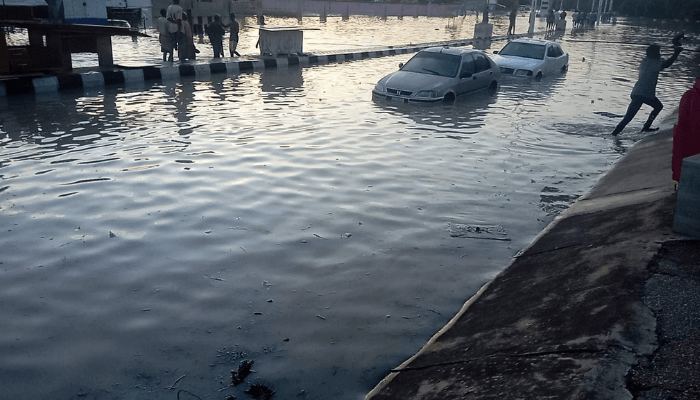Flooding in Nigeria has escalated from a seasonal nuisance to a national emergency. Once considered rare in certain regions, it’s now a recurring threat affecting lives, livelihoods, and infrastructure.
The national picture
Flooding in Nigeria is driven by a combination of factors, which include climate change, poor urban planning, and inadequate drainage systems.
Increased rainfall intensity and unpredictable weather patterns have led to more frequent and severe floods across many major cities. Similarly, rapid urbanization without adequate infrastructure has left many areas vulnerable to flooding.
It is no doubt that many cities lack proper drainage, leading to water accumulation during heavy rains. For instance, in 2024, severe flooding affected over 8.5 million people across West and Central Africa, with Nigeria among the hardest hit.
Abuja: A case study
Abuja, Nigeria’s capital was designed with modern infrastructure, including effective drainage systems, making it relatively flood-free in the past.
However, recent years have seen a change across the FCT. For instance, in September 2021; flooding in Trademore Estate resulted in fatalities and significant property damage.
Similarly, over 100 houses in the Lugbe area were submerged following the June 2023 heavy rains.
And the most recent, in April 2025, rain flooded the roads in Asokoro, making it difficult for cars and pedestrians to pass. It looked like a swimming pool not a well-constructed road.
Contributing factors to the recent flooding in Nigeria’s capital city were identified largely by blocked drainages and unregulated construction.
Over the years, accumulation of waste in drainage channels impedes water flow, while building on floodplains and waterways disrupts natural water courses.
Neglected Infrastructure: Lack of maintenance has led to the deterioration of existing drainage systems.
Way forward
To mitigate flooding, Nigeria must enforce urban planning laws; prevent construction on flood-prone areas. There is also need to invest in infrastructure, upgrade and maintain existing drainage systems.
The government must also promote environmental awareness and advocacy. This can be done by educating citizens on proper waste disposal to prevent drainage blockage.
Also, the government implements early warning systems, by developing and utilizing technology to forecast and respond to flood threats.
Sustainability and the future
Flooding isn’t just an environmental problem, it’s a sustainability issue. The way we manage our environment today directly affects the kind of world we leave for future generations.
When we allow blocked drainages, cut down trees, or build recklessly on waterways, we create conditions that make flooding worse. But when we care for the environment, we build resilience.
Sustainable development means meeting today’s needs without compromising the ability of future generations to meet theirs.
Tackling flooding through proper waste management, responsible urban planning, and climate action is a key part of this.
If we want a Nigeria where our children can live safely and thrive, then protecting our environment must be a top priority.
Flooding is no longer a distant concern; it’s a present danger. Addressing it requires collective action from government, communities, and individuals. Everyone has to be involved.
This affects us all. Flooding doesn’t just wash away homes, it washes away opportunities. Let’s build a Nigeria that lasts, for us and those coming after us.
Fagbemi is the principal information officer, NESREA, South West Zonal Office, Ibadan.











